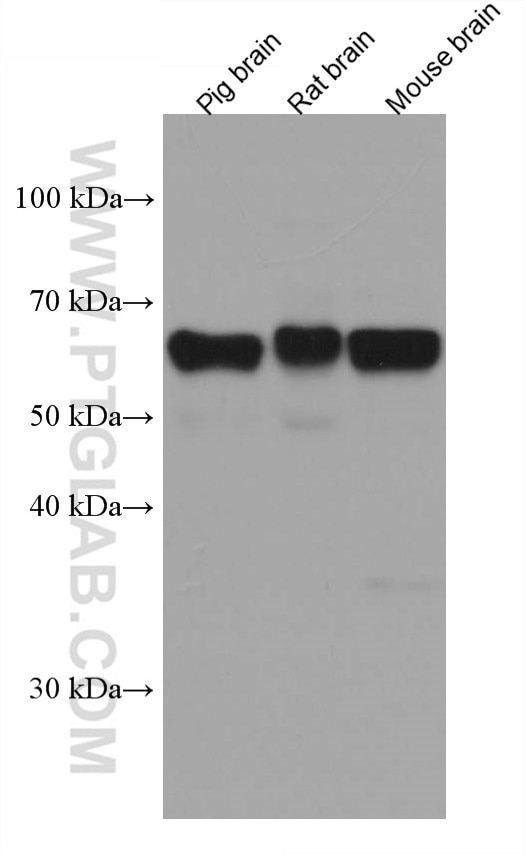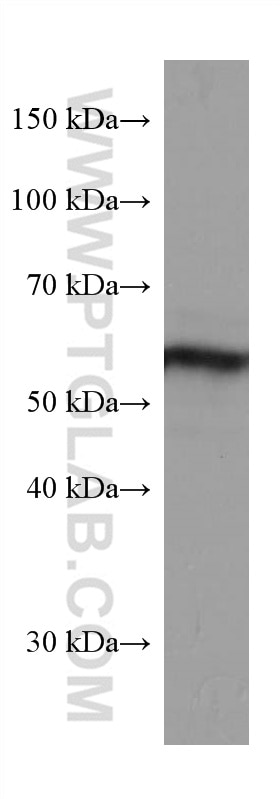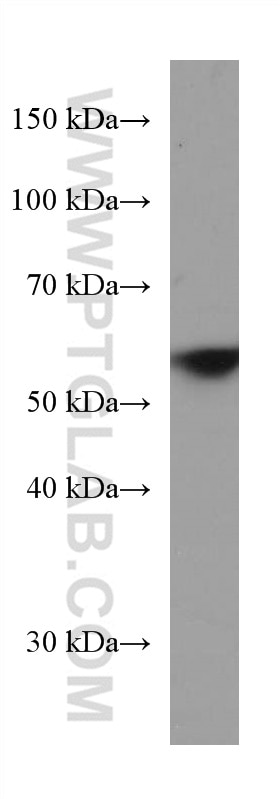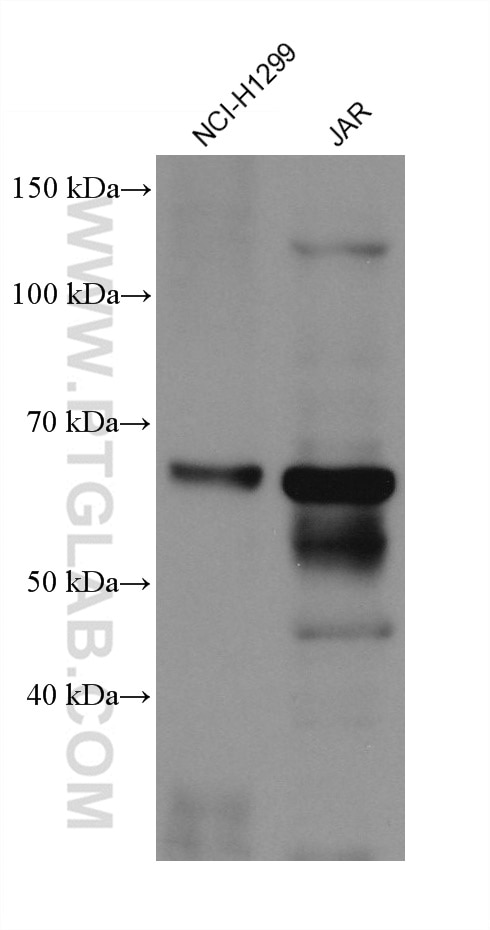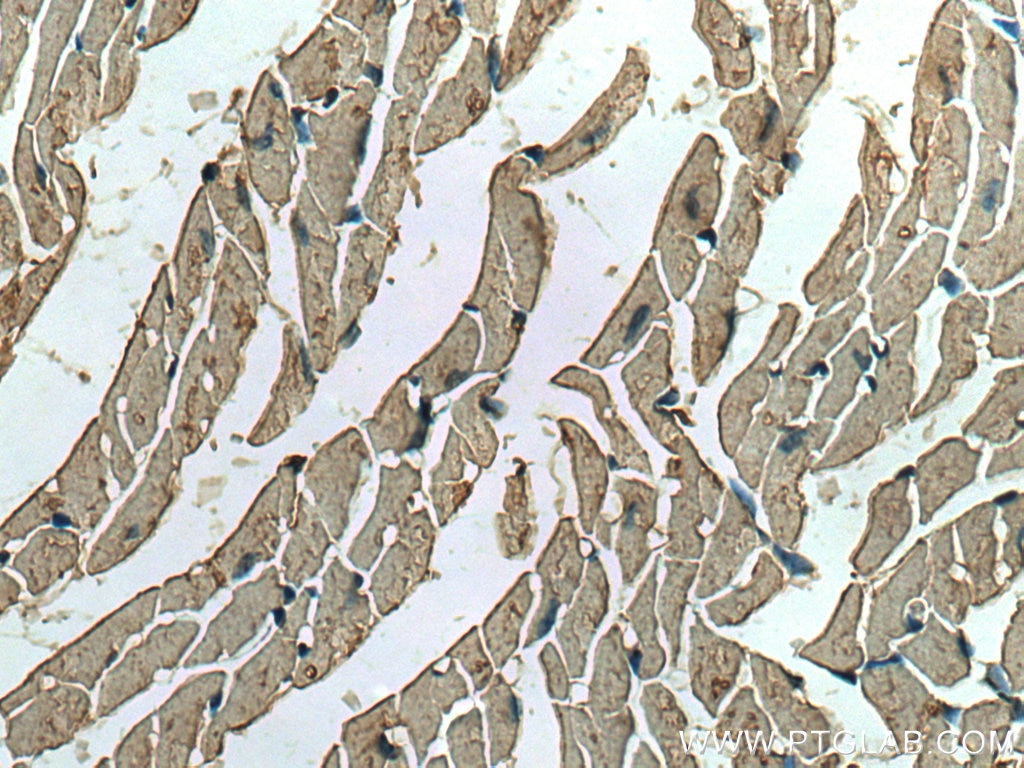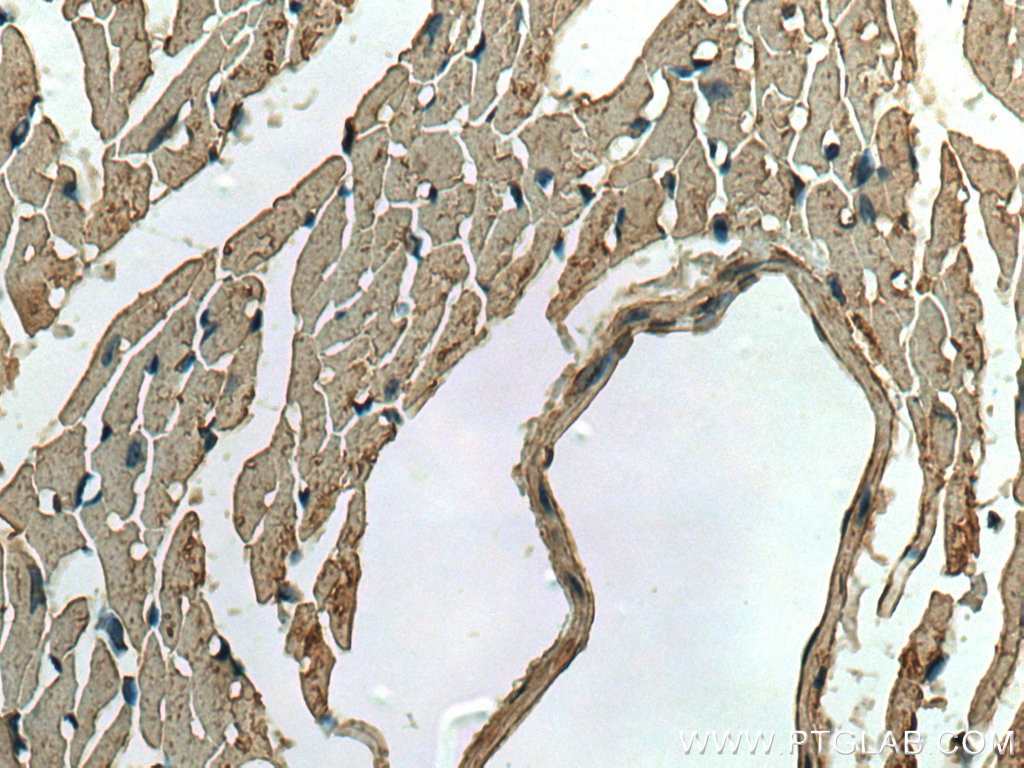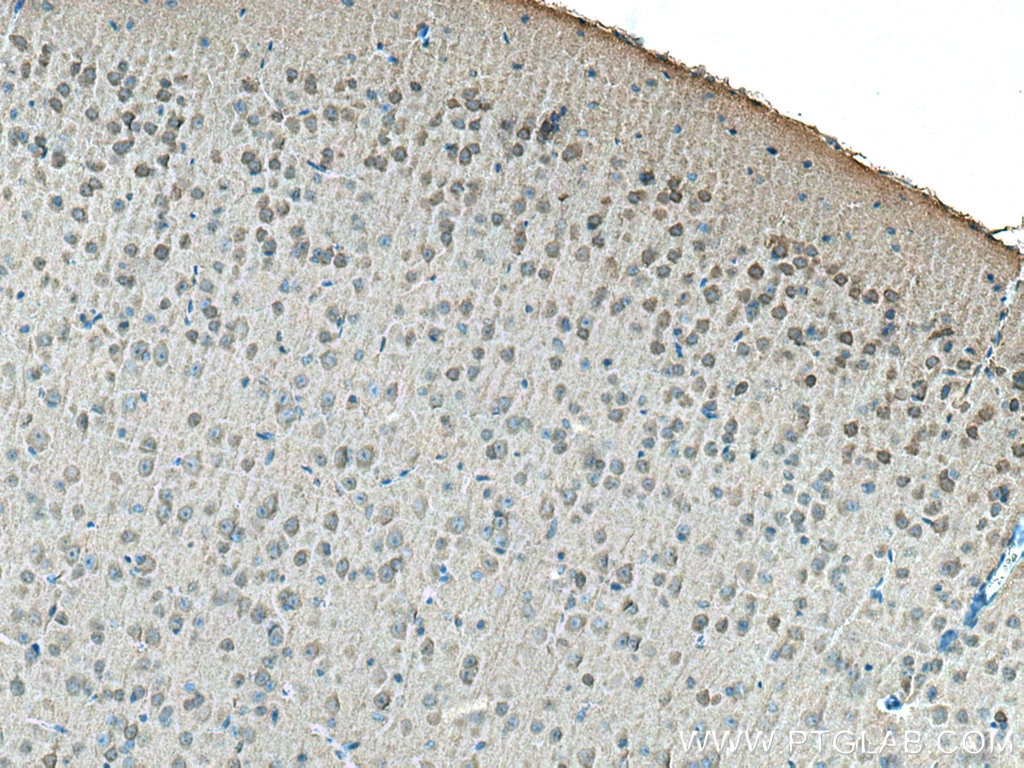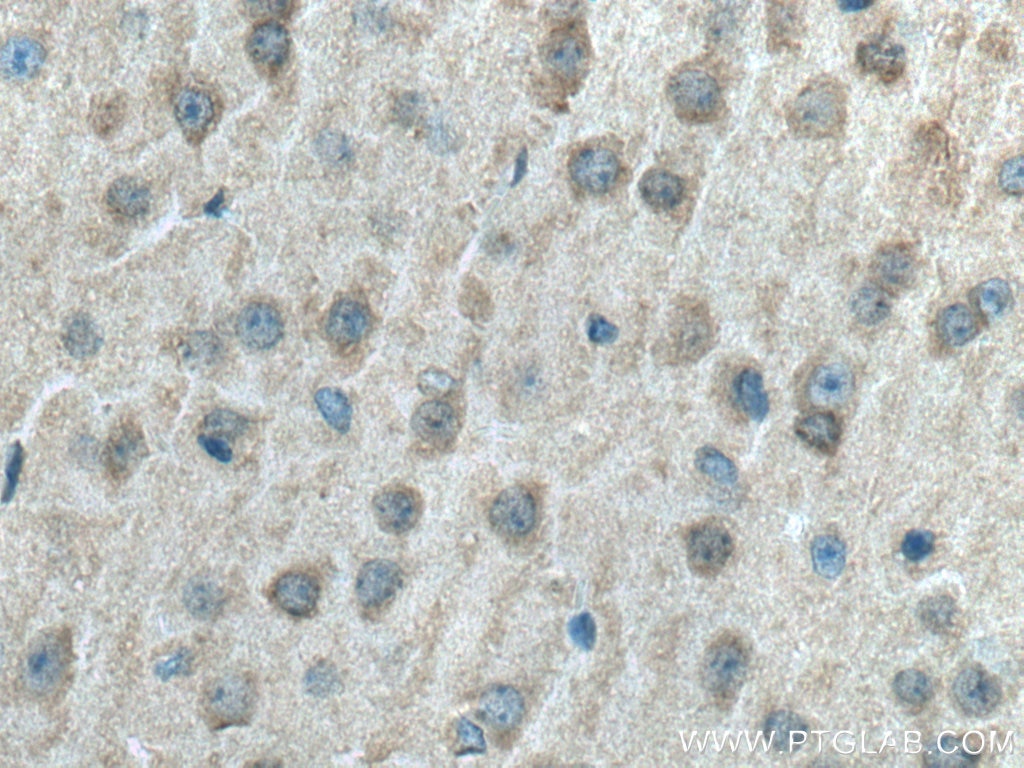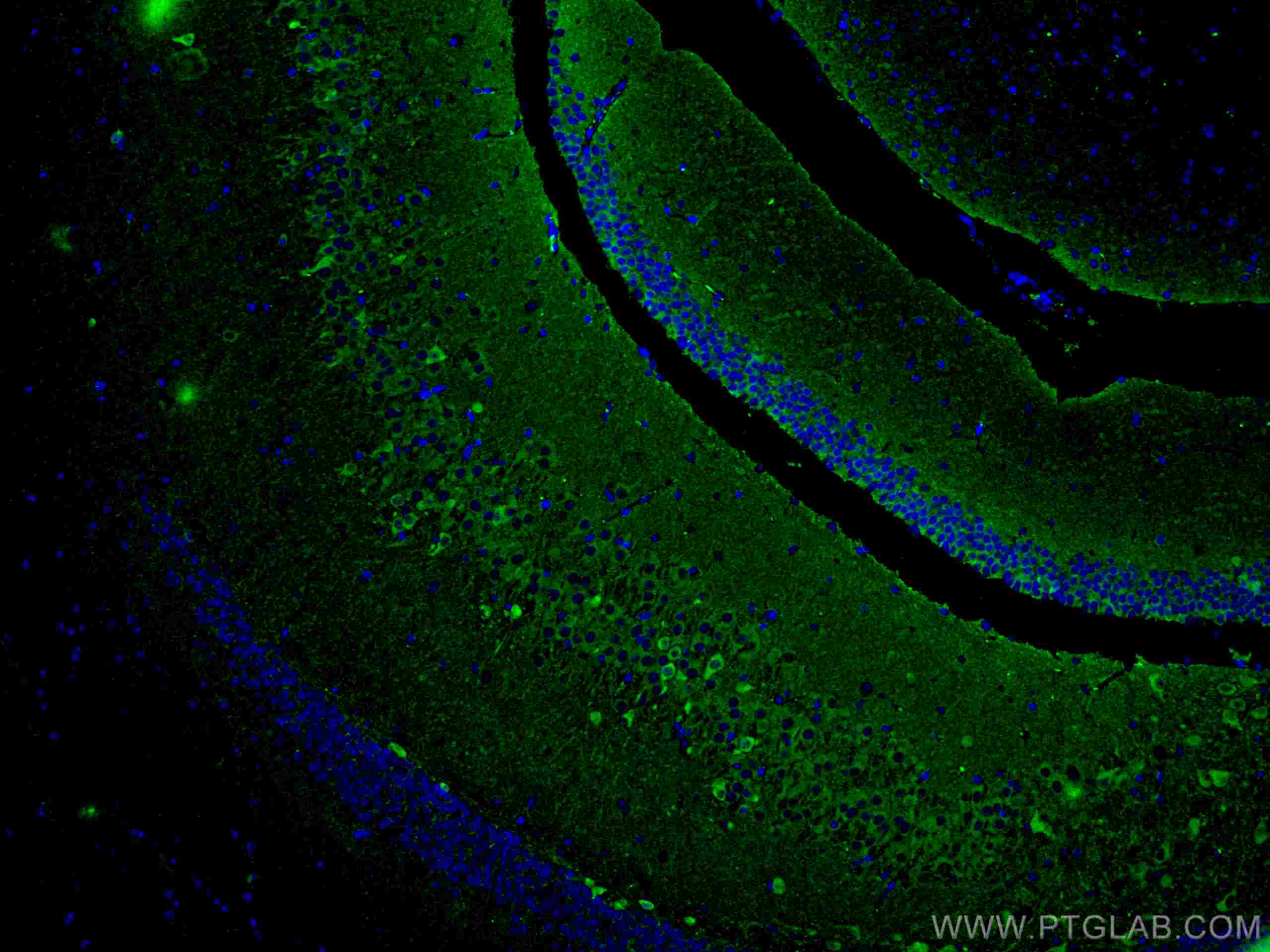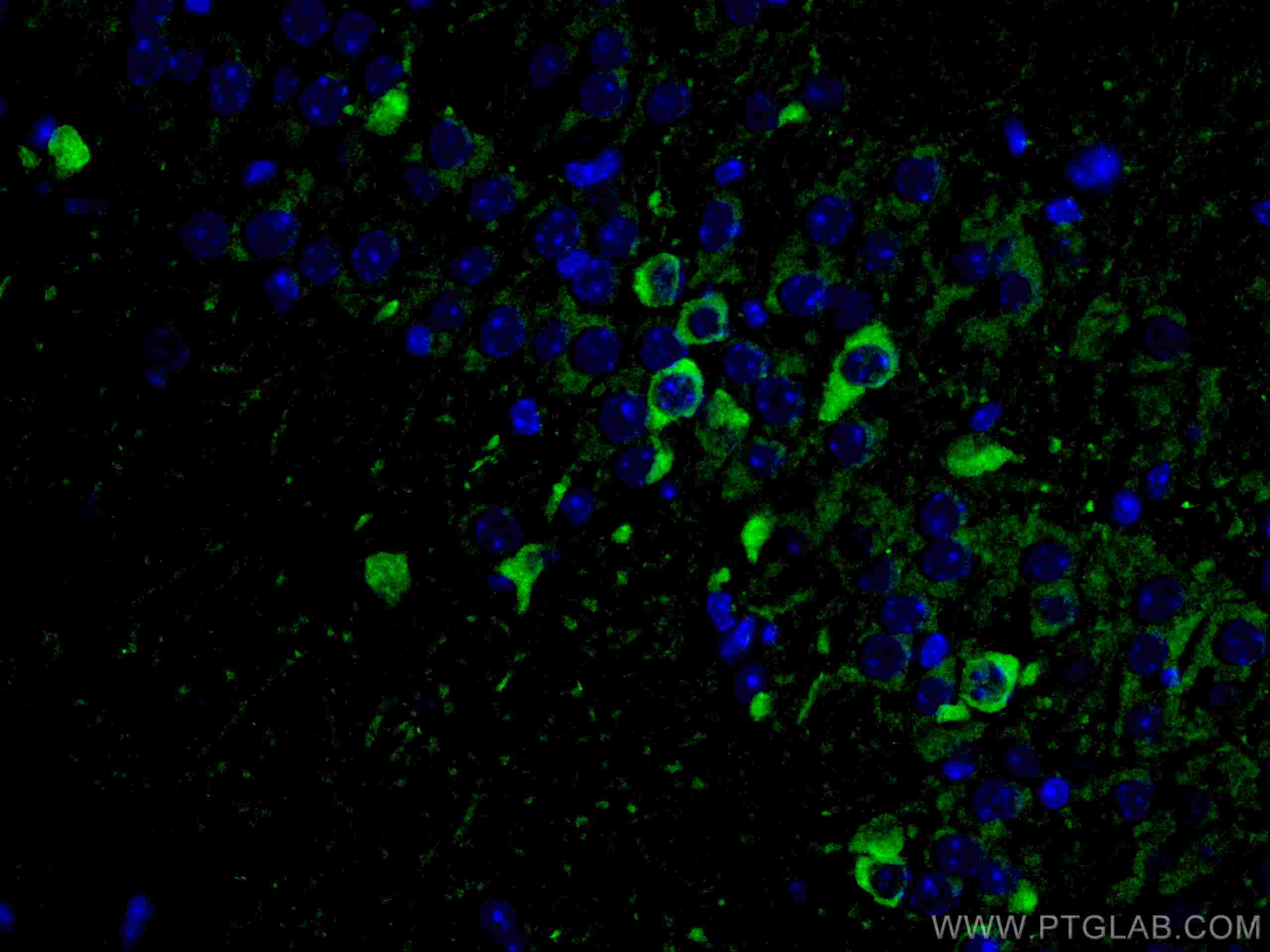Validation Data Gallery
Tested Applications
Recommended dilution
| Application | Dilution |
|---|---|
| It is recommended that this reagent should be titrated in each testing system to obtain optimal results. | |
Product Information
67417-1-PBS targets ACVR1 in WB, IHC, IF-P, Indirect ELISA applications and shows reactivity with Human, Pig, Mouse, Rat samples.
| Tested Reactivity | Human, Pig, Mouse, Rat |
| Host / Isotype | Mouse / IgG2a |
| Class | Monoclonal |
| Type | Antibody |
| Immunogen | ACVR1 fusion protein Ag13508 相同性解析による交差性が予測される生物種 |
| Full Name | activin A receptor, type I |
| Calculated molecular weight | 509 aa, 57 kDa |
| Observed molecular weight | 57 kDa |
| GenBank accession number | BC033867 |
| Gene Symbol | ACVR1 |
| Gene ID (NCBI) | 90 |
| RRID | AB_2882657 |
| Conjugate | Unconjugated |
| Form | Liquid |
| Purification Method | Protein A purification |
| UNIPROT ID | Q04771 |
| Storage Buffer | PBS only , pH 7.3 |
| Storage Conditions | Store at -80°C. |
Background Information
ACVR1 (activin receptor type I), also known as ALK2 or ACTRI, is a receptor for activin. It forms a stable complex with type II receptor after ligand binding. These receptors are all transmembrane proteins, composed of a ligand-binding extracellular domain with cysteine-rich region, a transmembrane domain, and a cytoplasmic domain with predicted serine/threonine specificity. Type I receptors are essential for signaling, and type II receptors are required for binding ligands and for expression of type I receptors. ACVR1 is expressed in many tissues including skeletal muscle and chondrocytes. It functions as a receptor for bone morphogenetic protein (BMP) and induces Indian hedgehog in chondrocytes during skeletal development. Mutations in ACVR1 gene are associated with fibrodysplasia ossificans progressive (PMID: 16642017).
